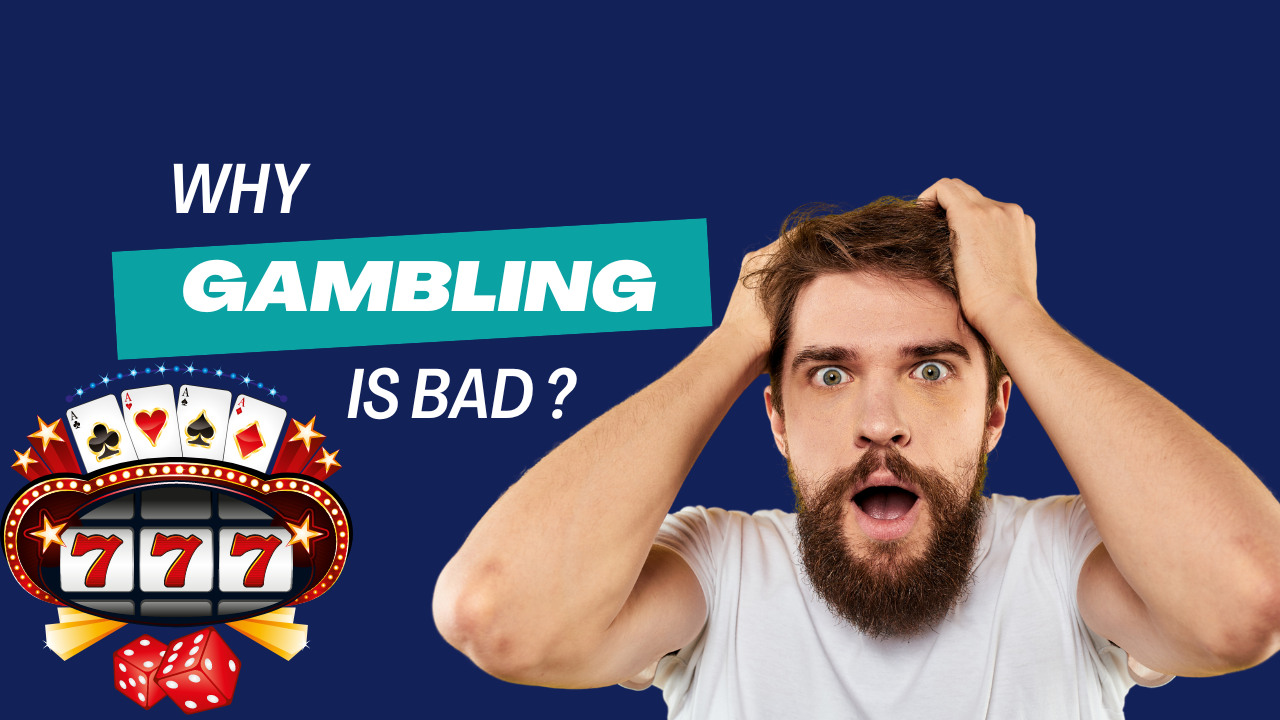
The allure of easy money, the thrill of the chase, the bright lights and clinking coins – gambling holds a certain romantic appeal. But before you dive headfirst into a game of chance, it’s crucial to understand the potential downsides. Here’s a closer look at why gambling might not be the path to prosperity or excitement you imagine.
The House Always Wins (And Here’s Why)
This isn’t just a catchy slogan; it’s a fundamental truth. Casinos, lotteries, and other gambling establishments are designed to make money, not distribute it equally. The odds are inherently stacked against the player through house edge (casino games) or unfavorable payout structures (lotteries).
For instance, a roulette wheel might have 38 numbers, but only one green zero. Even if you bet on red or black, which seems like a 50/50 chance, the presence of that zero gives the house a slight edge. Over time, this seemingly small advantage translates into significant profits for the casino.
The Allure of the Big Win: A Mirage in the Desert
We’ve all heard stories of lottery winners or lucky streaks at the casino. These tales, however, feed into a phenomenon called survivorship bias. We only hear about the successes, not the countless individuals who lose money on a regular basis.
The reality is that gambling is a form of entertainment, not an investment strategy. The expected value, a statistical measure of potential returns, heavily favors the house. While you might win occasionally, consistent victories are highly unlikely.
The Downward Spiral: When Gambling Becomes an Addiction
Gambling addiction, also known as compulsive gambling disorder, is a serious problem that can devastate lives. What starts as a casual bet can quickly spiral into chasing losses, neglecting responsibilities, and even resorting to stealing to fund the habit.
The emotional rollercoaster of gambling can be highly addictive. The highs of winning create a desire to repeat the experience, while losses trigger the urge to win back what was lost. This cycle can lead to significant financial problems, strained relationships, and mental health issues like anxiety and depression.
Read also : Safeguarding the Digital Age: A Look at Cybersecurity and Cryptography
Beyond Money: The Ripple Effects of Gambling
The consequences of gambling addiction extend far beyond the individual. Families can be torn apart due to financial strain and broken trust. Careers can be jeopardized due to absenteeism or embezzlement. Gambling can also have negative societal impacts, fueling organized crime and straining social services as they deal with the fallout from addiction.
Responsible Entertainment: Alternatives to Gambling
If you’re looking for excitement, there are numerous healthy alternatives to gambling. Competitive sports leagues, board games, escape rooms, or even learning a new skill can provide thrills and a sense of accomplishment without the financial risks.
For those who enjoy the social aspects of casinos, consider game nights with friends or joining a club with shared interests.
Help is Available: Breaking Free From the Gamble
If you or someone you know is struggling with gambling addiction, there are resources available to help. Support groups, helplines, and therapy can provide valuable assistance on the road to recovery.
Read also : A Guide to Selling Alcohol Online
Conclusion
Remember, gambling is a gamble. The odds are stacked against you, and the potential consequences can be severe. There are much better ways to spend your time and money. Choose entertainment that brings joy without the risk of financial ruin or addiction





